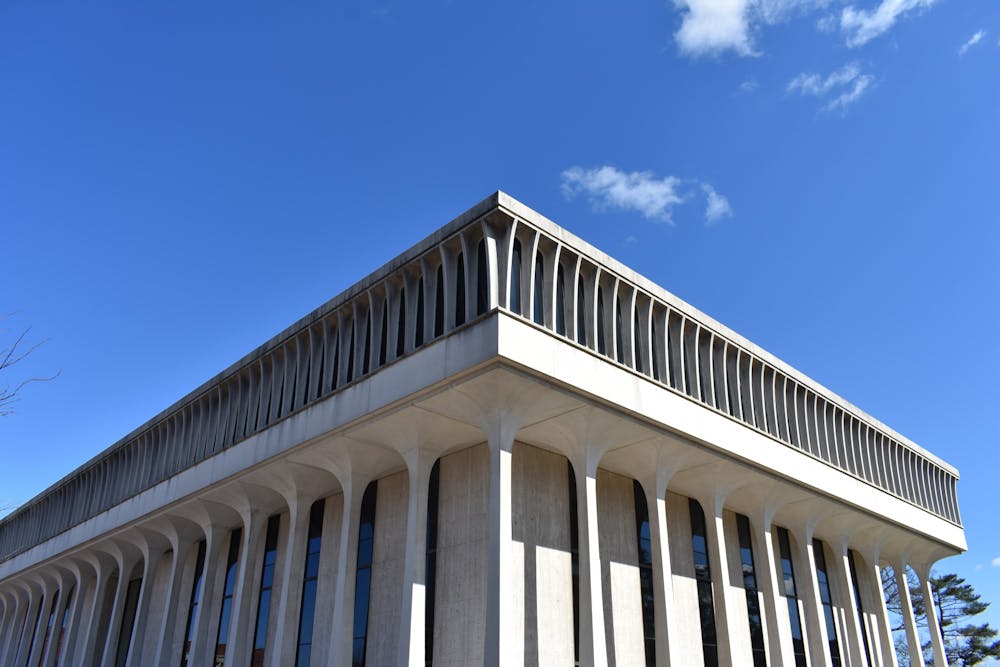I spent the majority of my childhood and young adulthood in China. I lived there for a decade, in Beijing, Shanghai, and Guangzhou. China’s contemporary political history is of extraordinary relevance to our current moment because it is a lesson in historical revisionism. It lays bare the dangers of censorship and the importance of preserving an academy that studies history in its entirety, not just its dominant narratives.
It is concerning to witness the frequency and frivolity with which calls for anti-racism by Princeton students and faculty are met with charges of censorship that seek to equate progressive activism with the tactics and intent of the Maoist “struggle sessions” that took place during the Chinese Cultural Revolution. This false equivalence has been posited by Professor Katz in his recent Quillette article. In a similar spirit, the POCC compared anti-racist training to “re-education camps.” The intellectual danger of these false comparisons compromises the integrity of history by undermining its objective study. Indeed, to equate events is to provide commentary, such that forced and inaccurate conflation is historical revisionism. The political danger is far more nefarious.
In conflating the promotion of anti-racist action with Maoist struggle sessions, the assertion is that those who wish to give academic prominence to the history of racism and racial oppression are in fact seeking to erase history, to revise it. But, the reality is that not only is the tactic of false historical equivalence itself a technique of historical revisionism, it obscures the true aim, on the part of the POCC and of those who adopt its rhetoric, of concealment.
Fortunately, while it is China’s history that is currently under siege by false equivalences, it is also this history which can teach us the fallacy of such remarks. The repercussions of the Great Proletarian Cultural Revolution should prompt several realizations, foremost among them the importance of presenting all sides of history and the recognition that incomplete histories are necessarily revisionist. Along with these should come the acknowledgement that abusing history to promote false equivalences is a political tactic with real human costs.
Among its many goals, a singularly essential aim of the Cultural Revolution was the physical erasure of certain aspects of China’s political and cultural history. The successes of this endeavor are still evident. In all my years in China, I never saw alive the sort of public and unfettered engagement with Confucianism that is for instance extant in Taiwan. In China, the few temples that remain are dormant relics, while in Taiwan temples are active, embedded at the intersection of culture, public, and personal life. While Taiwan enjoys its freedom, China suffers real, physical manifestations of its Cultural Revolution: a charnel house of temples in which culture suffocates, immured. In such a climate, one cannot even engage meaningfully with one’s own history, let alone hold its study to the principles of objectivity and transparency.
In place of what he considered an old, stagnant history hampering progress, Mao offered a cult of creative destruction, helmed by the Red Guards and leading inexorably to disaster and death. It was a blind historical race towards a post-historical moment. Mao’s actions teach that history can be controlled in two ways: suppression and concealment. By destroying temples, Mao suppressed history; by controlling and limiting the education of the youth who would ultimately comprise his Red Guards — who would go on to demolish these temples — he also concealed it.
It is this process of concealment that is of particular concern at the moment in Princeton’s dialogue on race, free speech, and anti-racist education. When Professor Katz and the POCC evoke the Cultural Revolution in condemning progressive actors, they suggest that calls for anti-racist curriculum, and indeed those calls for the removal of Wilson’s name from the Princeton School of Public and International Affairs (SPIA), are attempts to suppress history.
The removal of Wilson’s name from SPIA was not about erasing the history of his achievements; it was about recording alongside those achievements his awful and damaging failures. It was about remembering all of his history, not just the aspects that served what was the dominant and convenient narrative. The same is true about calls for anti-racist curriculum and training. This is not about replacing or rewriting history. It is about the intellectual sincerity of learning different aspects of history. Princeton is not being asked to erase its curriculum. It is being beseeched to complete it.
It astounds me that calls for a more comprehensive curriculum at an institution of higher learning are met with such aggressively anti-intellectual criticism. It is anti-intellectual because it seeks to conceal history, prevent an expanded curriculum, and preserve a dominant, convenient, but revisionist narrative. Yet those in favor of academic sincerity and historical completeness suffer constant comparison to anti-intellectual historical figures, while those seeking to uphold a woefully incomplete and by consequence itself historically revisionist curriculum roundly reject all charges of academic insincerity.
Universities like Princeton — situated in a free nation and benefiting from students who care and who commit themselves to learning — are the places that should champion the recording and analysis of history, so that events like the struggle sessions of the Cultural Revolution are never forgotten, never repeated, and never nefariously appropriated. This is the character of Princeton that should be upheld in spite of those who would abuse history to conceal its true revisionists.
Dylan Galt ’20 is a recent graduate of the Department of Mathematics. He can be reached at dgalt@princeton.edu.









